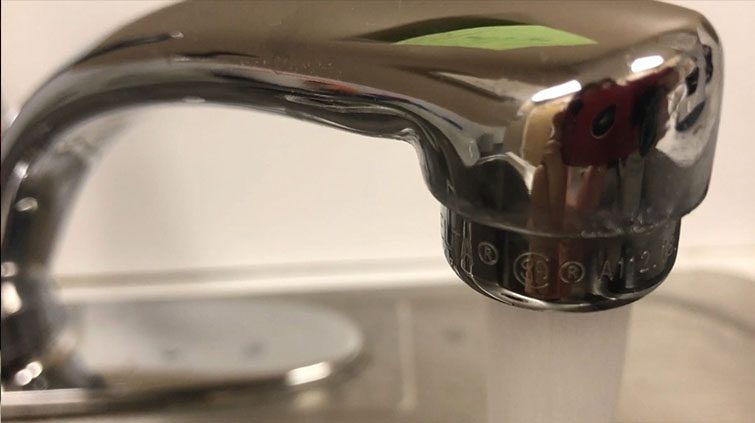The city of Naperville, through an investigation, has unearthed records showing that its inventory of lead water service lines is larger than previously expected.
Some records discovered as part of the probe reveal that lead water service lines were not banned in the city until 1960, resulting in the discovery of up to 2,000 additional lead water service lines, up from the list of 200 that originally remained. Previously, staff believed lead pipes were prohibited in 1930.
Darrell Blenniss, the city’s director for water utilities, said most of the impacted properties are in the Moser Highlands and Scots Plains subdivisions.
Recent Legislative Action
It all comes in the wake of recent action taken by both state chambers to pass state House Bill 3739, the Lead Service Line Replacement and Notification Act, that would require municipalities, if authorized by the governor, to give additional attention to water utilities. The regulations would seek to build on previous legislation but also continue to conduct and report a water service line material inventory and maintain records of persons refusing to grant access to the interior of buildings for identifying the material of water service.
Blenniss said the new legislation would require an inventory, in addition to a plan on removing the remaining lead line services. On average, the city will be required to complete an average of 20 to 24 lead water service line replacements annually, officials said.
Blenniss said he believes the city will be able to comply with the regulations, if the bill is signed into law by the governor. The city has already given some additional attention to water utilities pre-dating the new requirements.
Recordkeeping Practices Examined
Staff had decided to conduct additional research as the city could be required to have a plan in place by 2024 to replace its lead water service lines.
Blenniss said it’s easier in today’s world to search for records than it was years ago.
“The ordinances are quite old—60 to 90 years old,” Blenniss said. “We were able to review those through our document management system and found additional documentation that resulted in additional homes that need to be investigated.”
At the same time, the city finds it challenging to identify and keep record of the material of water service.
“You have to dig up the parkway or go inside the home,” Blenniss said. “It’s not easy to get your eyes on it. It’s buried or it’s in your home. … Getting access to these properties can be a challenge from time to time.”
Blenniss said it is unlikely that additional homes would need to be investigated.
How the Lead Line Replacement Programs Work
Naperville is expected to pursue lead water service line work in conjunction with water main replacement projects. The city is currently eying about 20 lead service replacement jobs, officials said. There is talk of completing more work in the years to come.
In locations where there isn’t already a water main project scheduled in the next five to 10 years, officials will lean on either issuing rebate incentives to complete the work or targeting city funding to help residents of homes that are not having a nearby water main replaced.
Blennis said the city is confident in its ability to comply with the regulations that passed in both chambers and is awaiting the governor’s final say. He did not rule out the possibility of Naperville pursuing state and federal grants to help pay for the lead water service line replacement work.
Moving Forward
The city intends to exhaust all means before reaching out to residents for access to their homes in order to investigate the material of water service. Blenniss said they will conduct research and perform cross-checks with other governmental agencies first.
Naperville News 17’s Megann Horstead reports.
If you have a story idea, we want to hear from you.

